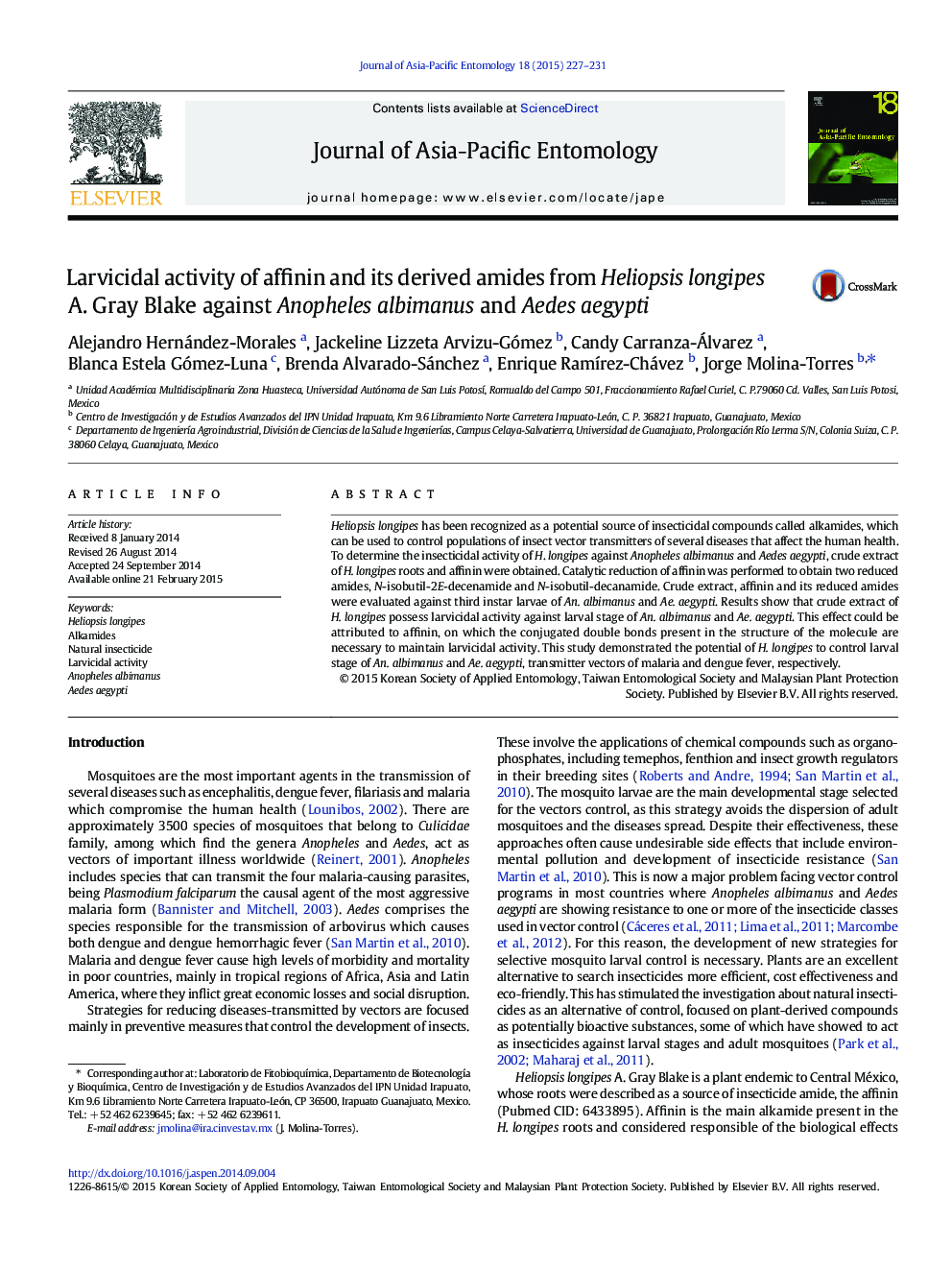| Article ID | Journal | Published Year | Pages | File Type |
|---|---|---|---|---|
| 4524474 | Journal of Asia-Pacific Entomology | 2015 | 5 Pages |
•Alkamides as natural insecticides•Alpha unsturation in alkamides bioactivity•H. longipes roots larvicidal activity against third larval stage of An. albimanus and Ae. aegypti.•Importance of omega conjugated double bonds for insecticidal properties against An. albimanus and Ae. aegypti.•Control of malaria and dengue vector transmitters
Heliopsis longipes has been recognized as a potential source of insecticidal compounds called alkamides, which can be used to control populations of insect vector transmitters of several diseases that affect the human health. To determine the insecticidal activity of H. longipes against Anopheles albimanus and Aedes aegypti, crude extract of H. longipes roots and affinin were obtained. Catalytic reduction of affinin was performed to obtain two reduced amides, N-isobutil-2E-decenamide and N-isobutil-decanamide. Crude extract, affinin and its reduced amides were evaluated against third instar larvae of An. albimanus and Ae. aegypti. Results show that crude extract of H. longipes possess larvicidal activity against larval stage of An. albimanus and Ae. aegypti. This effect could be attributed to affinin, on which the conjugated double bonds present in the structure of the molecule are necessary to maintain larvicidal activity. This study demonstrated the potential of H. longipes to control larval stage of An. albimanus and Ae. aegypti, transmitter vectors of malaria and dengue fever, respectively.
Graphical abstractFigure optionsDownload full-size imageDownload as PowerPoint slide
